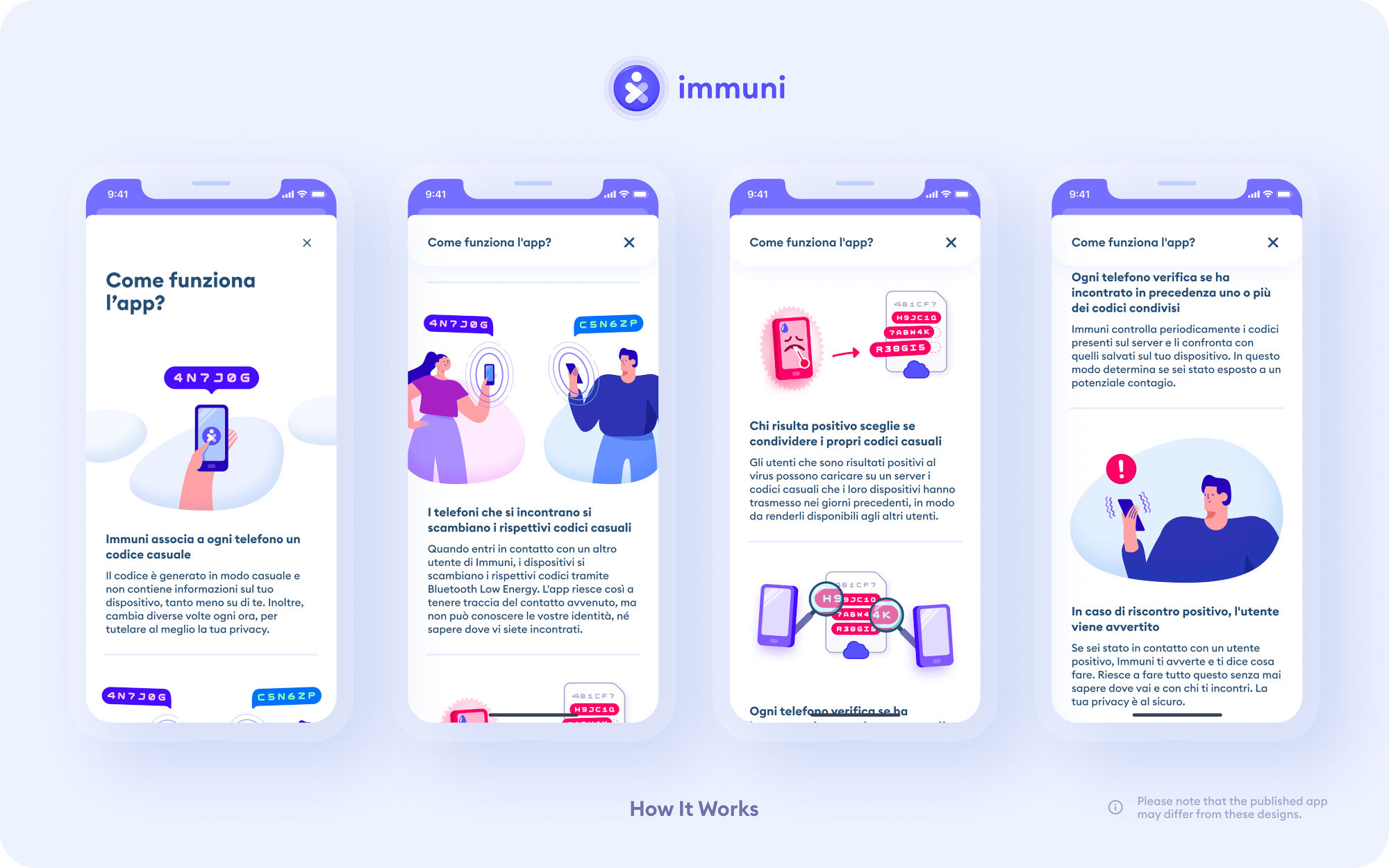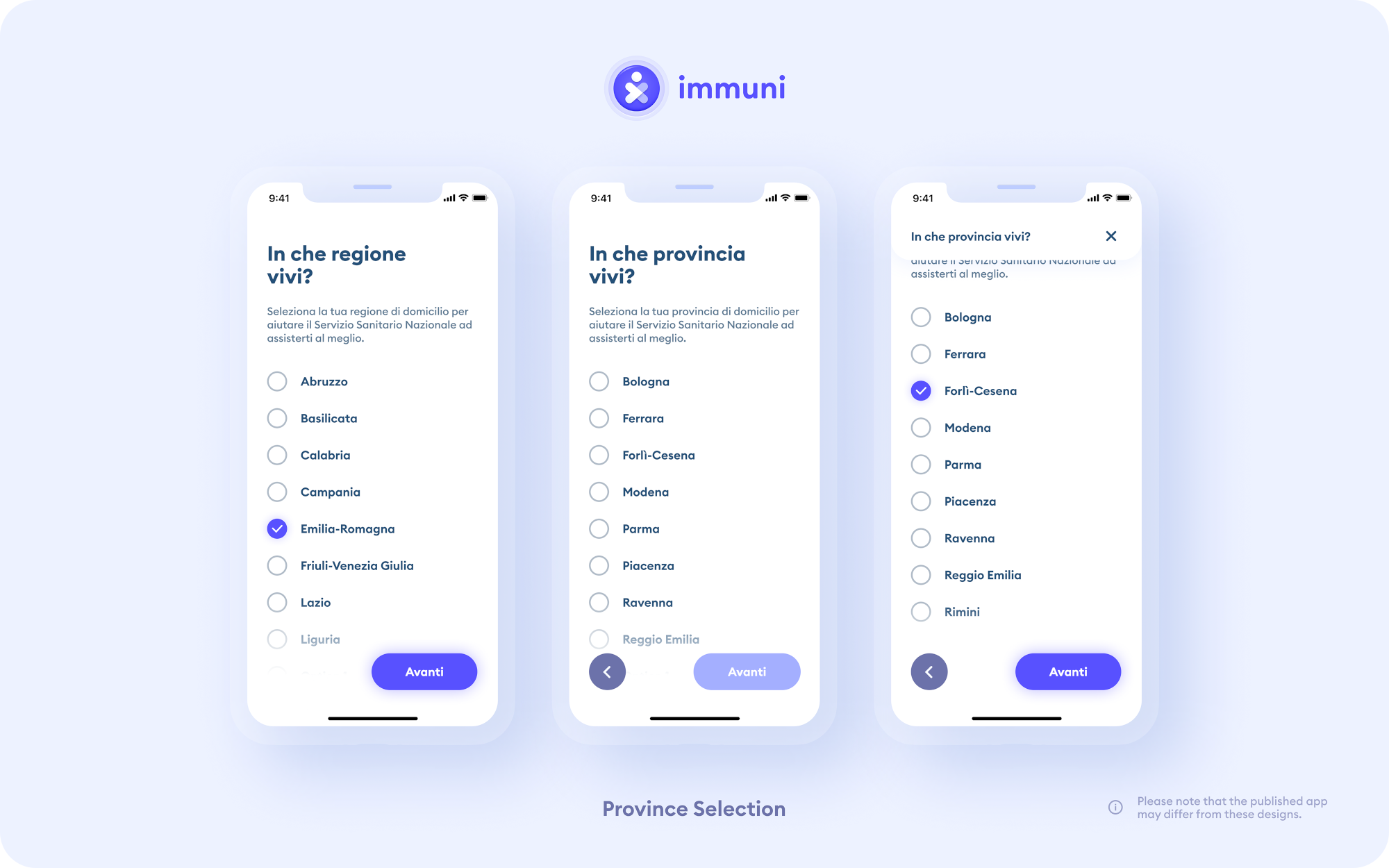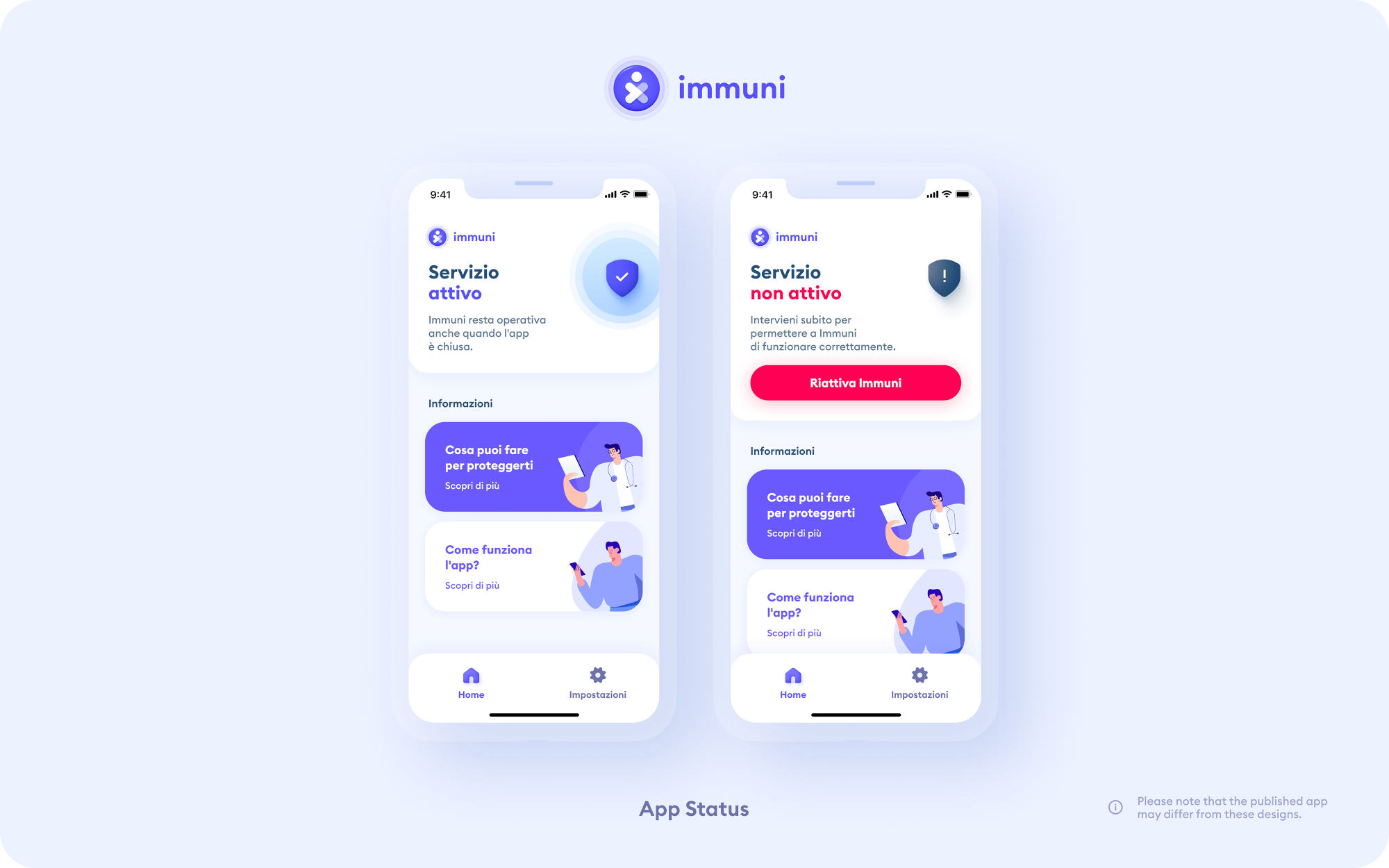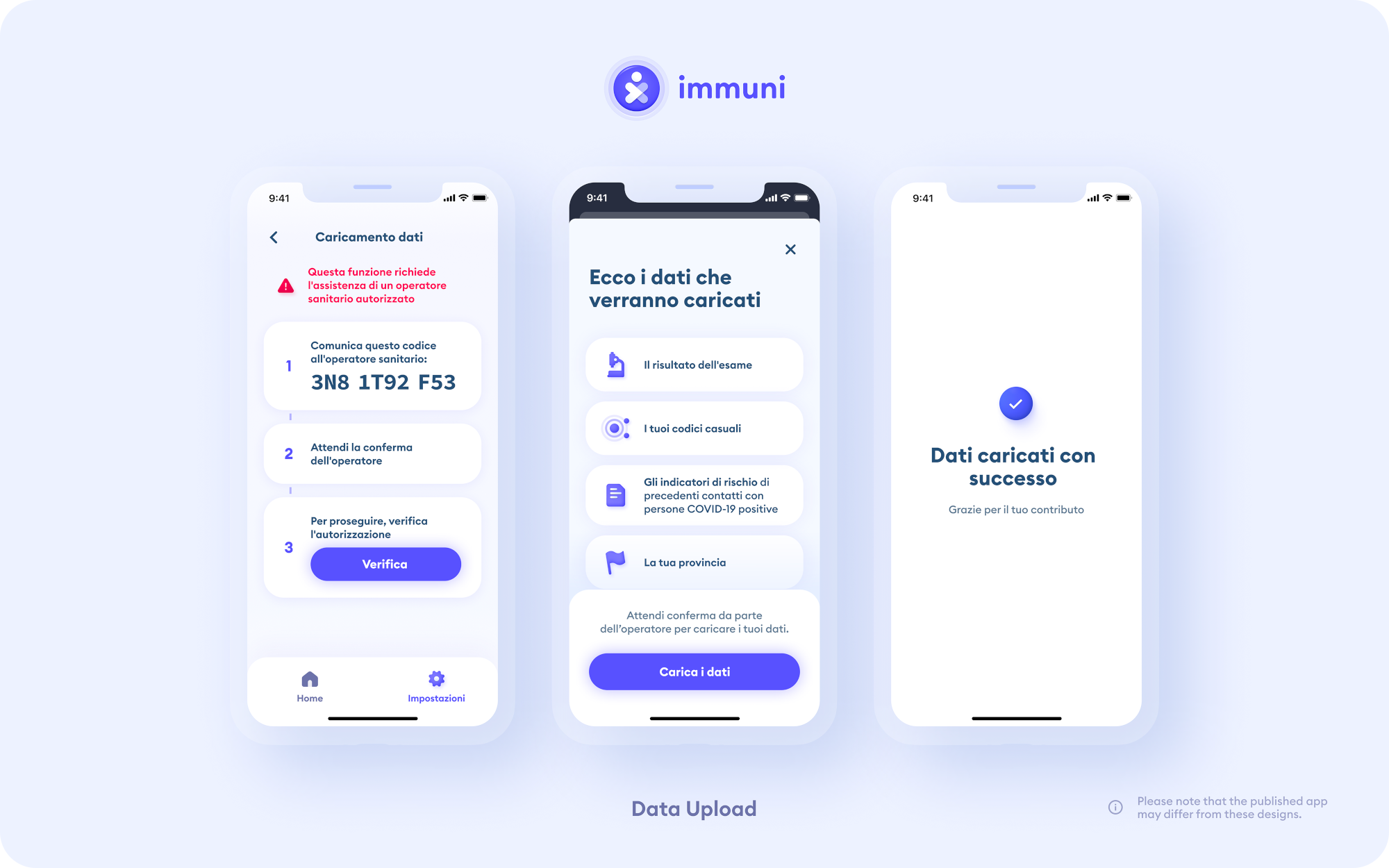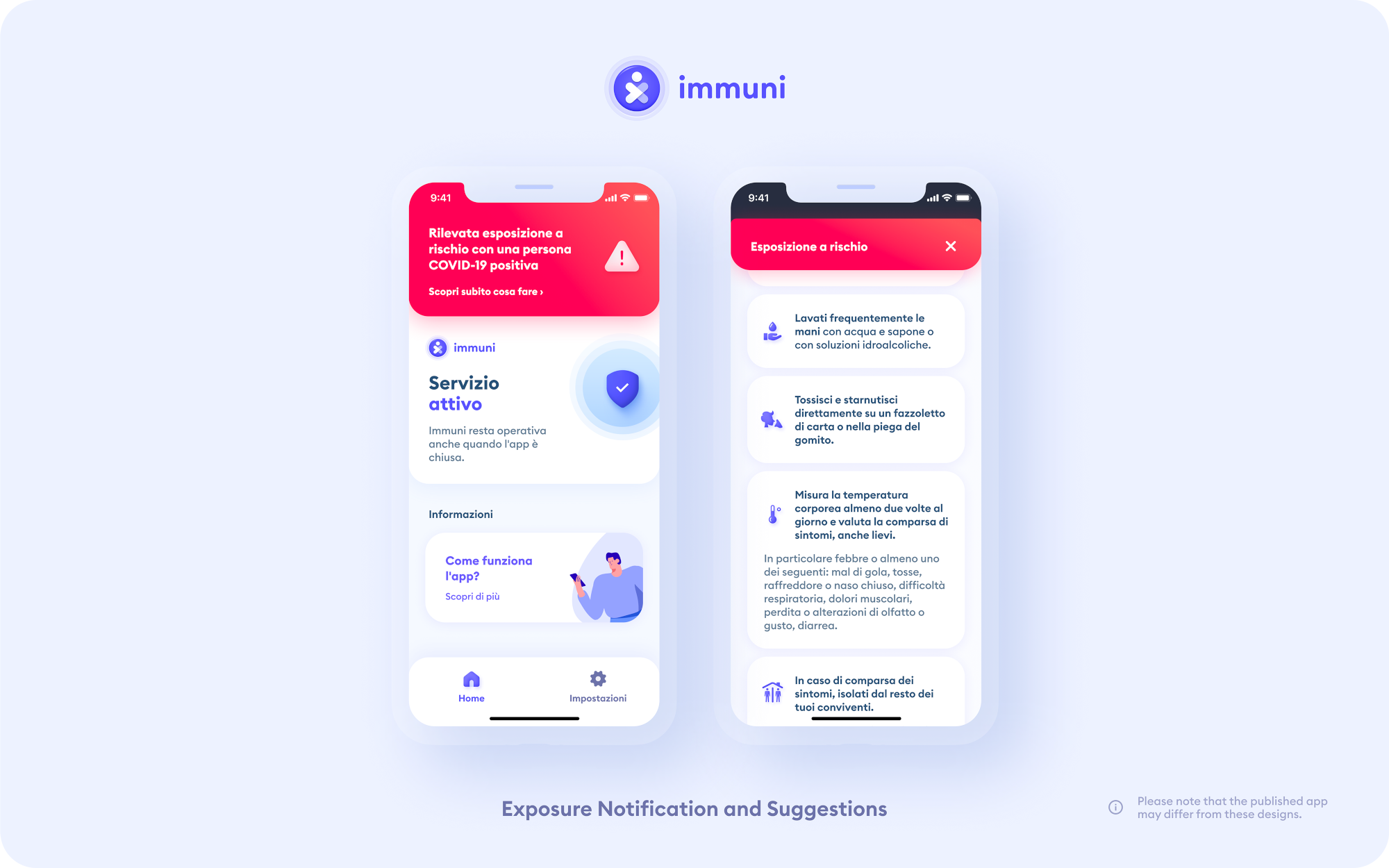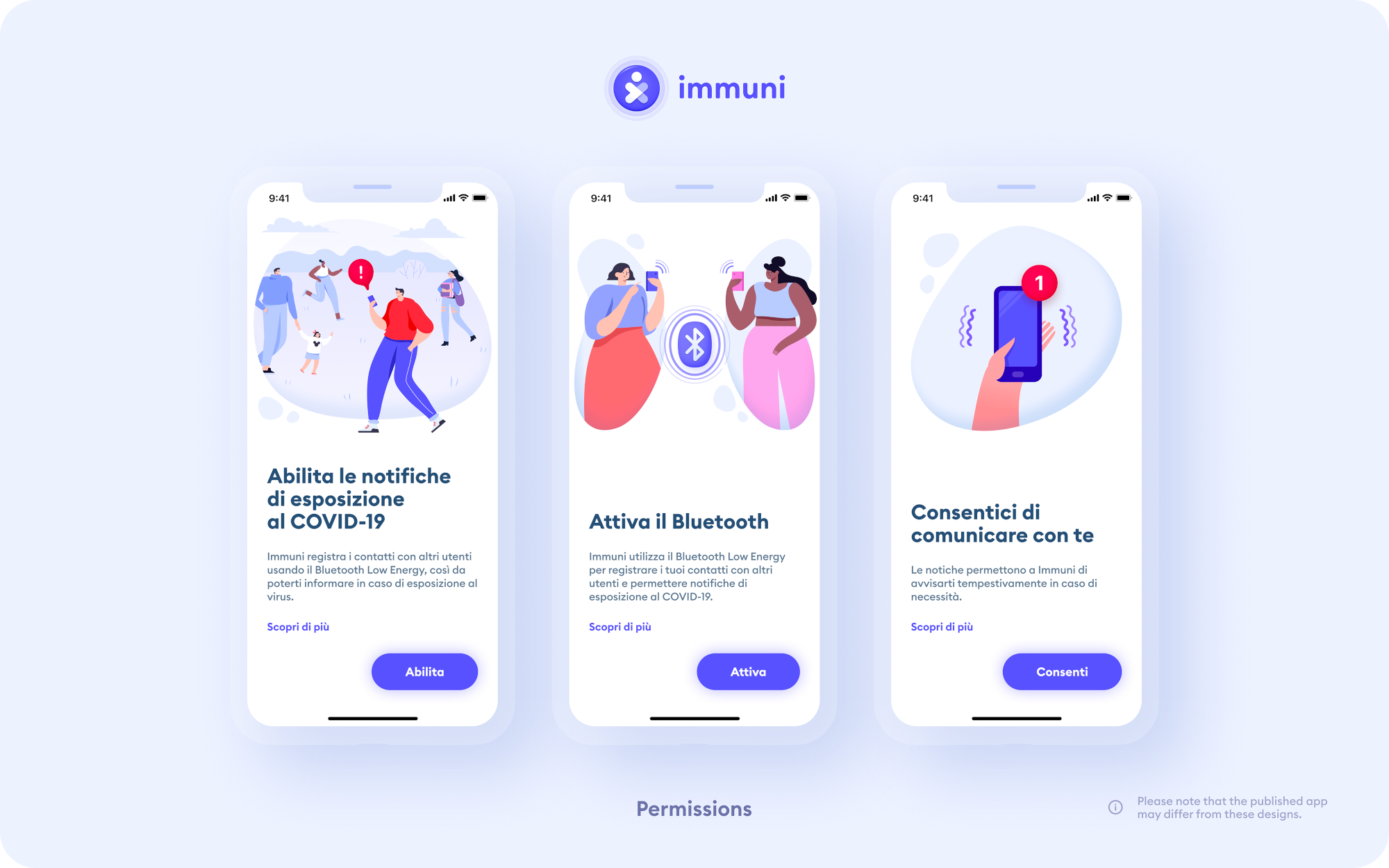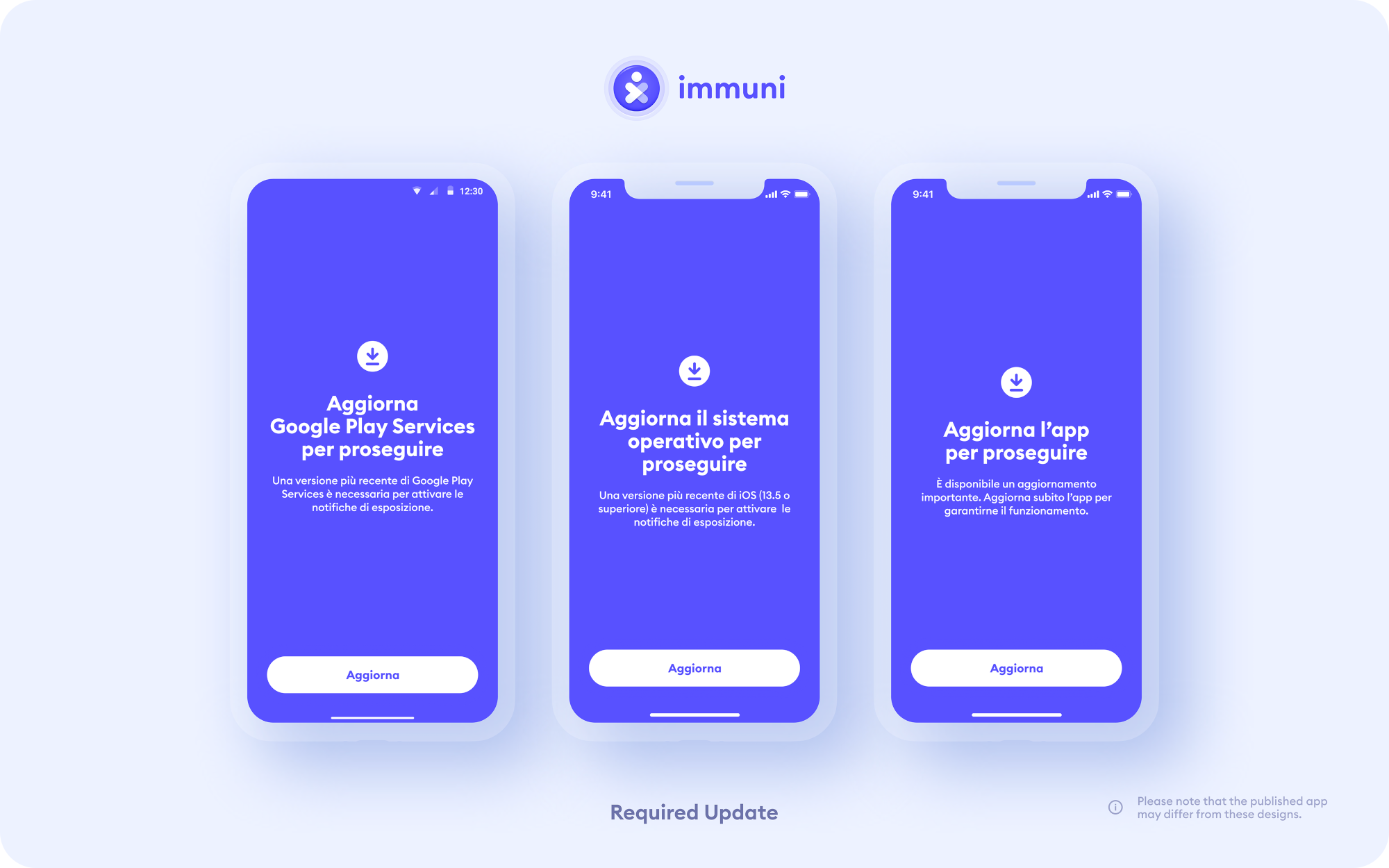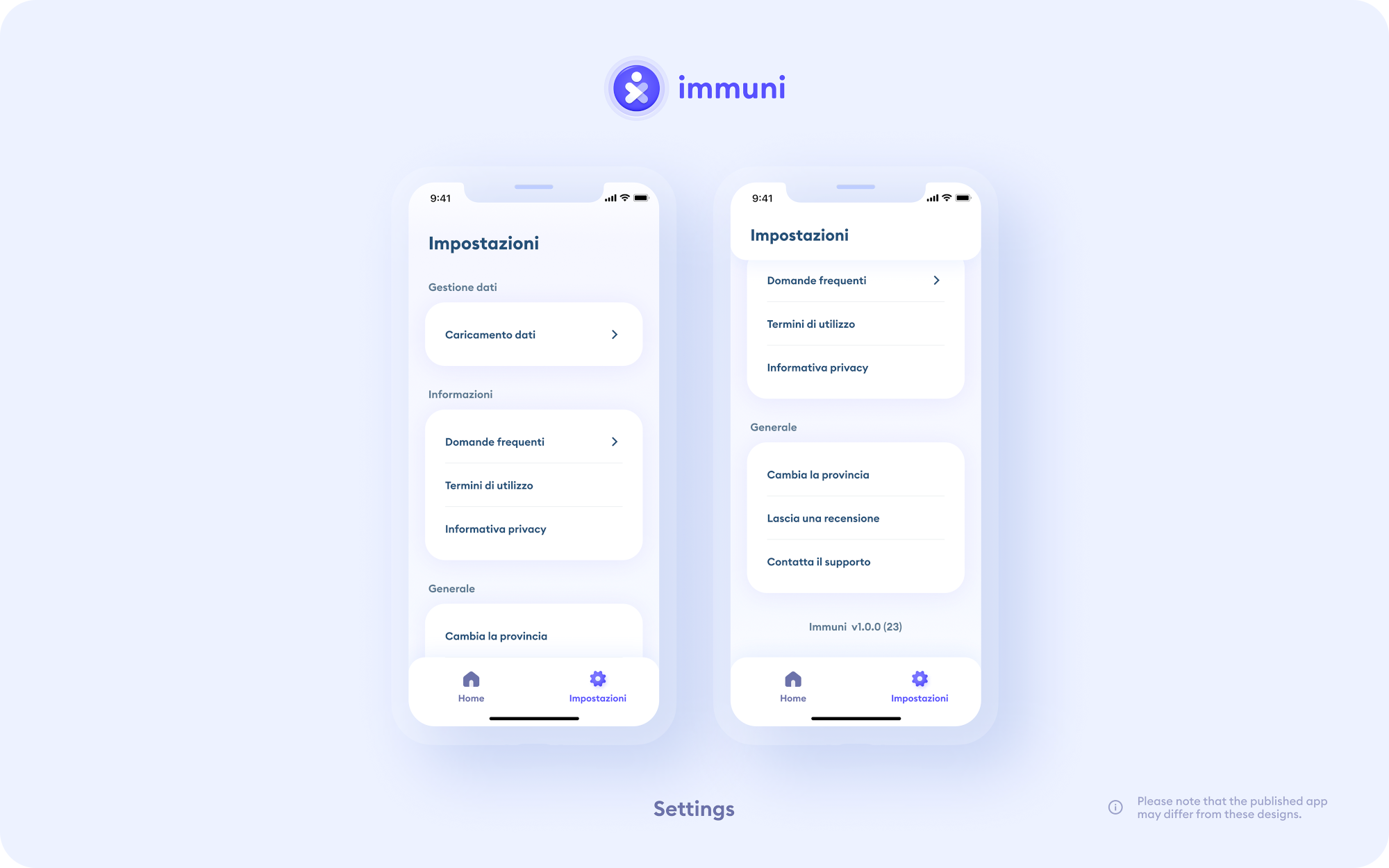
immuni 2.2.1
Mobile App
Immuni is a mobile app that helps us to fight the COVID-19 pandemic by notifying users at risk of carrying the virus as early as possible
Published by Presidenza del Consiglio dei Ministri
Technical contact Ministero della Salute
Vitality:
47%
The vitality index, as explicited in the guidelines for the acquisition and reuse of software for Italian PA, is calculated according to the following four main categories:
- Code activity: the daily number of commits and merges;
- Release history: the daily number of releases;
- User community: the number of unique authors;
- Longevity: the age of the project.
The ranges of every measure can be found in the vitality-ranges.yml file.
Development status: stable
Software functionality
BLE Contact Tracing
Upload Recent Temporary Exposure Keys
Leverages the Apple and Google Exposure Notification framework
Presidenza del Consiglio dei Ministri
detailed information
immuni 2.2.1
Mobile App
Last release 2021-01-27 (2.2.1)
Type of maintenance internal
License AGPL-3.0-only
Platforms
ios
android
List of dependencies None
Enabling platforms None
Compliance GDPR Design Guidelines Security Guidelines Interoperability Model
Supported languages
Italian
English
Api documentation immuni API
Extended description
Immuni is a technological solution that centres on an iOS and Android smartphone app. It helps us to fight the COVID-19 pandemic by notifying users at risk of carrying the virus as early as possible—even when they are asymptomatic. These users can then isolate themselves to avoid infecting others, and seek medical advice.
Immuni’s design and development are based on five main principles: utility, accuracy, scalability, transparency, and privacy.
It features a contact tracing system based on Bluetooth Low Energy:
- When two users come sufficiently close to each other for long
enough, their devices record each other’s _rolling proximity
identifier_ in their local memory. These identifiers are generated
from _temporary exposure keys_ and change multiple times each hour.
These keys are **generated randomly** and change once per day.
- When a user tests positive for SARS-CoV-2, the virus causing
COVID-19, they have the option to upload to a server their recent
temporary exposure keys. This operation can only happen with the
validation of a **healthcare operator.**
- The app periodically downloads the new temporary exposure keys and
uses them to derive the infected users’ rolling proximity
identifiers for the recent past. It then matches them against
those stored in the device’s memory and **notifies the user** if
a risky contact has occurred.
- The system uses **no geolocation data** whatsoever, including GPS
data. So, the app cannot tell where the contact with a potentially
contagious user took place, nor the identities of those involved.
To implement its contact tracing functionality, Immuni leverages the Apple and Google Exposure Notification framework. This allows Immuni to be more resilient than otherwise would be possible.
Besides the temporary exposure keys, the Immuni app also sends to the server some analytics data. These include epidemiological and technical information, and are sent for the purpose of helping the National Healthcare Service (Servizio Sanitario Nazionale) to provide effective assistance to users, in compliance with art. 6.2.b and 6.3 of the Law Decree 28/2020.
Immuni is being developed while paying a lot of attention to user privacy and a number of measures have been taken to protect it. For example, the app collects no personal data that would disclose the user’s identity, such as the user’s name, age, address, email, or phone number.

